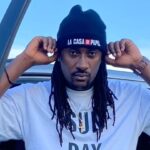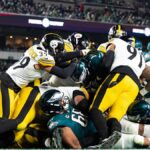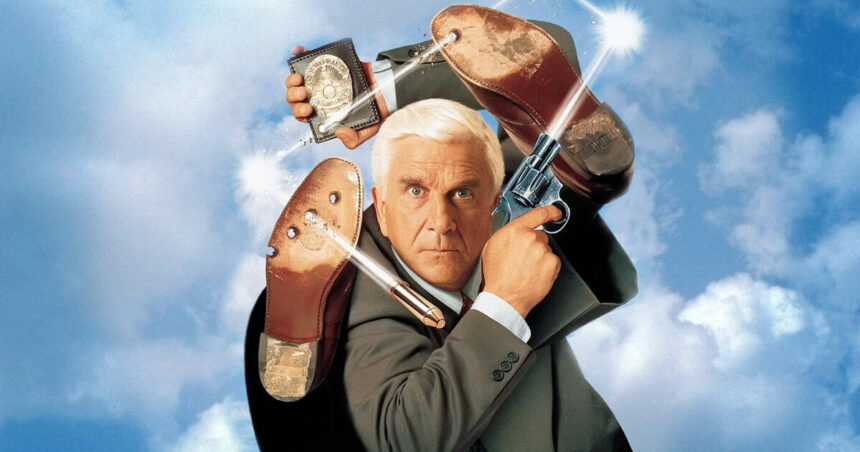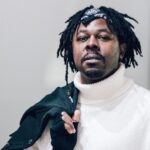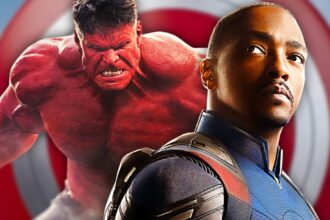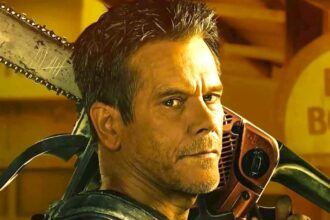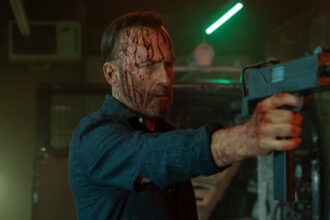In 1996, Leslie Nielsen found himself on a promotional tour for his comedy flick, Spy Hard, when the topic of O.J. Simpson’s shocking arrest ignited a media firestorm. Simpson was facing accusations tied to the appalling murders of his ex-wife, Nicole Brown, and Ron Goldman. Given Nielsen’s previous collaborations with Simpson in the iconic Naked Gun series, reporters were keen to gauge his reaction. The endearing Canadian actor momentarily turned serious, reflecting on a past friend and co-star whose charm belied the gravity of the situation. While he didn’t outright condemn Simpson, there was an unmistakable note of skepticism regarding his innocence in Nielsen’s tone.
Following the debut of The Naked Gun 33 1/3: The Final Insult on March 18, 1994, it was just a mere three months until Simpson’s dramatic arrest, marking a difficult intersection of entertainment and unsettling reality. For fans of the franchise, including myself, it became increasingly difficult to separate the colorful comedy from the unfolding tragedy that overshadowed it. The implications of these events extended far beyond the screen, affecting the lives of two victims and drowning the media in controversy. Simpson’s legal turmoil effectively eclipsed the Naked Gun brand, signaling an era’s end.
O.J. Simpson’s role as the bumbling Nordberg drew heavily on his sports legacy rather than his limited acting skills. While he had made strides in entertainment, his acting credits were usually more serious in nature; he narrowly missed out on a lead in the thriller The Terminator. The filmmakers’ decision to incorporate someone like Simpson—a figure known for vigor and athleticism—into the ensemble cast was not only a marketing strategy but also a delightful contrast to Nielsen’s deadpan humor. With notable performances by George Kennedy, Ricardo Montalban, and Priscilla Presley, the casting choices lent the series an air of delightful unpredictability.
Under the creative guidance of the Zucker-Abrahams-Zucker trio, the films epitomized slapstick comedy during the late ’80s and ’90s. The success of the first film, The Naked Gun: From the Files of Police Squad, paved the way for a deep appreciation of the cast’s comedic talents, including that of Simpson, whose performance led to increasingly prominent roles in subsequent installments. Audiences embraced the outrageous humor that defined the franchise, elevating the palpable chemistry among Nielsen, Kennedy, and Simpson to a defining feature of the series.
However, the shifting focus of the creative minds behind the films hinted that a natural conclusion to the series might have been on the horizon, irrespective of the turmoil surrounding Simpson. Jerry Zucker ventured into more serious projects like Ghost, while Abrahams found success with parodies such as Hot Shots. By the time plans for a third film began to take shape, only David Zucker and Proft remained from the original team, with Peter Segal stepping in as the director.
The concluding chapter in the Naked Gun saga features a retired Frank Drebin grappling with domesticity before being pulled back into undercover work to thwart a terrorist plot. The film cleverly interlaces pop culture nods, including a playful wink to Thelma & Louise, and a memorable moment at the Academy Awards, where Nielsen humorously invoked his likeness to talk show host Phil Donahue.
Although The Naked Gun 33 1/3 didn’t reach the same heights as its earlier entries, it still managed to earn a solid $51 million at the box office. Meanwhile, Nielsen continued to star in other comedic ventures, like Spy Hard and Wrongfully Accused. The lingering question persists: what might have unfolded had tragedy not intervened?
Simpson’s legal troubles cast a long shadow over the film’s release, leading to a postponement in home video availability and a marketing strategy that conspicuously omitted his image. Yet, the film performed decently well in home media and on television, even as aspirations for a sequel dwindled. While Paramount toyed with the notion of a reboot in 2009, featuring Nielsen once more, the project ultimately never materialized.
Leslie Nielsen remained an entertaining figure until his passing in 2011, showcasing his range through performances both comedic and heartfelt, like in The Music Within. His request for the Naked Gun theme at his funeral embodies the legacy of joy and laughter he cultivated throughout his career.
This summer, an exciting new iteration of The Naked Gun is set to hit theaters, engaging with the complex history surrounding O.J. Simpson rather than outright disregarding it. The trailer introduces Leslie Neeson stepping into the shoes of Frank Drebin Jr., alongside Paul Walter Hauser, creating a connection to their fathers that speaks to both nostalgia and modernity. While some express concern about the reboot’s direction, anticipation among potential viewers seems robust, mirroring the serendipitous way Nielsen originally captivated audiences.
Ultimately, the legacy of Nielsen and the Naked Gun films remains resilient, a reminder that even in the face of controversy, the brand’s humor has solidified its place in cinematic tradition. While some may struggle to separate the films from their complex background, for many, Nielsen’s comic brilliance endures strong.
The post The Naked Gun 33 1/3: Was It Always Supposed to End the Franchise? appeared first on Nova Play.




